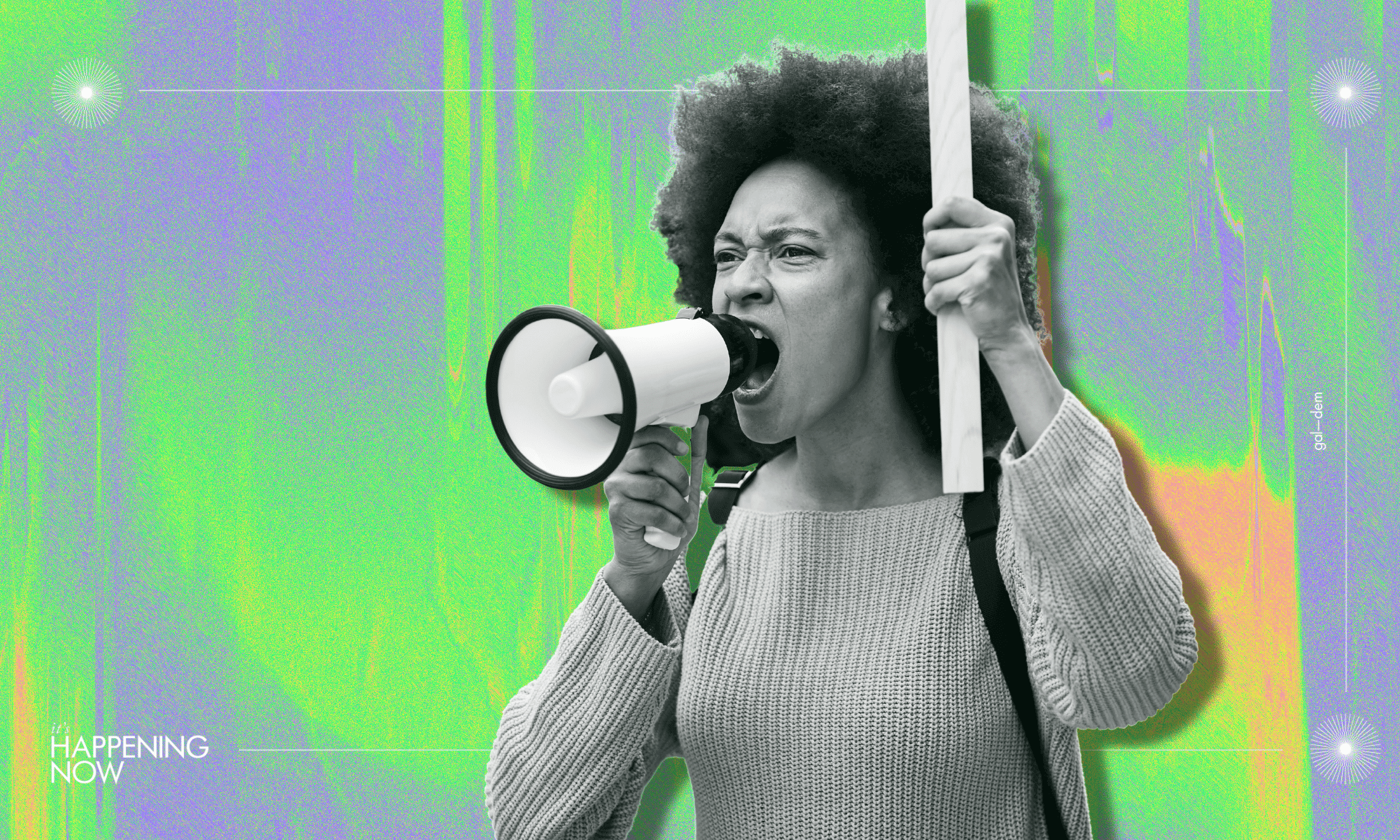
Why you don’t need to be an activist to make an impact in the climate movement
Direct action isn't the only way to establish ourselves within environmental justice, sometimes our best work is rooted in who we already are.
Joycelyn Longdon
25 Mar 2022
Welcome to gal-dem’s monthly ‘It’s Happening Now’ climate column, exploring the intersections of race, class and marginalisation within climate breakdown. As current climate conversations overwhelmingly lack both heart and accessibility, Joycelyn Longdon, an environmental PhD student at Cambridge, tackles the subject from an education and action-focused perspective – not for aimless doomism.
When we hear the words ‘climate activist’, our minds might immediately conjure up images of direct action; protests, marches, and rallies, Extinction Rebellion members glueing themselves to streets or tying themselves to trees. Though grassroots organising has always been a core part of social movements, exerting necessary pressure on those in positions of power for justice, it’s also vital to be realistic in that not everyone will feel comfortable or drawn to direct action for a multitude of very valid reasons. As direct action becomes increasingly necessary in a fast heating world, it’s vital to remember that it only represents one approach to dealing with the climate crisis.
Despite proclamations from some people within the climate movement of ‘needing everyone to do something’, of needing to be grounded in community, and accepting of difference and diversity, I felt this wasn’t the case when I first entered the climate movement. I began worrying that there was a ‘correct’ way of taking action against climate by being the loudest (and most knowledgeable) in the room, policing others and by attending every march, protest or rally. I thought I had to shed my interests, hobbies or sources of joy in case they sit in direct contradiction of what it seems to mean to be a ‘climate activist’. It wasn’t until I started having open conversations with others in the movement who were experiencing the same pressures of perfection. After all, there can be barriers to certain types of direct action that come in the form of racial prejudice, lack of access or safety for those with disabilities or the inaccessibility of time for those who are carers. In these instances, the expectation of perfection can hinder the possibility of any action.
“I thought I had to shed my interests, hobbies or sources of joy in case they sit in direct contradiction of what it seems to mean to be a ‘climate activist'”
Consider the work of American academic Robert Bullard, commonly known as the ‘father of environmental justice’ and his wife Linda Bullard. Linda was the attorney who, in the late 70s, brought a legal case against Southwestern Waste Company. They proposed building a new waste site right in the middle of a Black community in Houston. Linda’s case was not only an attempt to sue the company but was also the first, in the United States, to use civil rights law to challenge environmental discrimination.
Linda had suspicions that the decision to build toxic and polluting waste sites in Black communities was not an accident. With Robert applying his research skills to provide information and data for the case, her suspicions were confirmed. Her husband’s research uncovered an unfortunate truth; he found “that 82% of all solid waste dumped in Houston from the 1930s to 1978 was dumped on black communities when black people were only 25% of the city’s population”.
Despite the judges looking beyond the conclusive evidence, Robert continued his research, expanding to different Black communities, and discovered similar findings. He compiled his research in a seminal text called Dumping Dixie: Race, Class, and Environmental Quality, which became a staple in environmental justice teachings and action. Robert used the skills he already had to support, and even catalyse, the movement in the best way he could.
In October 1991, he would help organise the National People of Colour Environmental Leadership Summit, in which the ‘Principles of Environmental Justice’, a document listing and defining the demands and characteristics of environmental justice, were created. These principles have been called “a defining document for the growing grassroots movement for environmental justice” and have influenced the modern-day environmental and climate justice movements we see today.
“ I believe the climate movement must focus on transformative collective action that celebrates people’s varied interests, capabilities, relationships, commitments and strengths”
From Steven Donziger, the lawyer who spent a decade of his life fighting Chevron, the second largest oil company in the United States, in the face of their degradation of the Ecuadorian rainforest (and serving time for it), to Ethiopian Orthodox Church leaders, using symbolism from their religion to protect the last 2% of forest in the country. From Nzambi Matee, the Kenyan engineer and biochemist turning plastic waste into durable and cheap building materials, to Rowen White (Kanienten:hawi), the Indigenous farmer, seed keeper, mother and storyteller, supporting the world’s food growers and food justice activists, there exist an abundance of routes to impact within the climate and environmental movements.
Luckily, groups like the BadActivist Collective are taking up space and facilitating conversations around imperfection in activism and showing that the restrictive rules and criteria imposed by those individuals who believe there is only one way to act in the face of climate breakdown, are merely an illusion. What I know to be true is that our impact in the climate movement, however we choose to show up within it, is not based on who we think we should be, but rather how we are called to act.
“Our best work happens when it is rooted in who we already are”
In order to make long-term, meaningful change, I believe the climate movement must focus on transformative collective action that celebrates people’s varied interests, capabilities, relationships, commitments and strengths. This work doesn’t need clones, it needs impassioned people to discover and step into their roles within the movement.
In early 2021, I shared a resource I had been working on since 2020 that explored the different roles that exist within the movement. Inspired by ‘Four Roles of Activism’ brought to life by journalist, broadcaster and activist Bill Moyer, I created my own framework – one that I am currently fleshing out and building upon. From ‘The Insiders’ like lawyers, researchers and policymakers, to ‘The Nurturers’, like spiritual leaders, therapists and mothers, and ‘The Rooters’, like farmers and growers, there is a multitude of ways to show up and have an impact in the climate movement. When we open our minds to the richness of skills, interests and passions people have like ‘The Keyworkers’ like medics and cleaners facilitating protests and ‘The Storytellers’ writing music and plays to communicate the climate crisis, there is a beautiful community of climate-conscious individuals ready to and already making radical change.
When we consider, for a moment, that the word radical derives from the Latin radic or ‘root’, we move closer to understanding the nature of our roles in the climate movement. Our best work happens when it is rooted in who we already are, rooted in the why behind our action. When we imagine the climate movement as a wise and powerful oak, we see ourselves as the roots, extending out for hundreds of miles and in different directions, each feeding in and drawing up something unique yet essential.
Whether we are driven by rage or by theory, by creativity or by education, whether we are doctors, activists, authors, musicians, lawyers or mothers, there is a role for everyone in the climate movement.
Like what you’re reading? Our groundbreaking journalism relies on the crucial support of a community of gal-dem members. We would not be able to continue to hold truth to power in this industry without them, and you can support us from £5 per month – less than a weekly coffee.
Our members get exclusive access to events, discounts from independent brands, newsletters from our editors, quarterly gifts, print magazines, and so much more!









